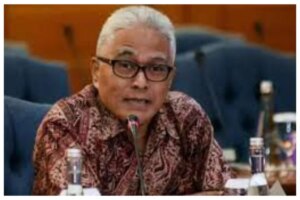Sacrifice Ethics and National Leadership

[ad_1]
BONSERNEWS.com – Berqurban is an old rite, as old as human civilization. We can find the tradition of sacrifice in cultures and religions ranging from the ancient Greeks, the Aztecs to Islam.
Sacrifice is a religious practice, an offering to a god, a god. Sacrifice is not a rite sich. It is a symbol and contains a message.
Lecturer at Paramadina University, Dr Sunaryo said, the message of religion (Islam) is very clear.
“Approaching oneself to God is carried out with valuable actions. In Qurban, the values that are encouraged are solidarity,” said Sunaryo in Jakarta, Wednesday, June 28, 2023.
Also Read: During the Long Weekend of Eid al-Adha 2023, Odd Even in Jakarta will be eliminated
In essence, according to Sunaryo, Muslims must not abandon social responsibility, they must be involved in tackling social problems. Participate in social responsibility, individual pious, social pious.
In his presentation, Sunaryo stated that Qurban is an event throughout the year. The Quranic rites of animal slaughter are just a reminder. Again, qurban has a social dimension
“What is no less important, the annual qurban ritual has great potential in efforts to empower the weak. Unfortunately, even though the potential and value of qurban is quite large economically, it is not managed properly,” he continued.
Also Read: Here’s the Minister of Labor’s Comments on Eid Al-Adha Joint Leave, Check Out the Full Review Below
“As a result, the potential for qurbani disappears in a matter of days. The sacrificial animals are slaughtered, then distributed to the less fortunate. That is correct. However, this practice has no emancipatory effect. The message of empowerment is not sound,” he said.
For Sunaryo, this self-criticism must be leveled at managing the potential for community empowerment.
“The potential for community empowerment is only completed at the level of ritual ceremonies. In the context of Imamat, leadership, organizing. There must be leadership, it is important that state organizations are carried out together, collectively. For one particular purpose to create society and people,” added Sunaryo.
Meanwhile, young Paramadina thinker, Arif Zulhilmi highlights the practice of qurban which is still dominated by egoistic interests, such as showing off, competition for prestige and so on.
“Therefore, it is difficult to expect social transformation from qurban worship on a large scale. An appreciation of diversity that prioritizes rites rather than the moral message behind the rites will not change the face of society,” he explained.




